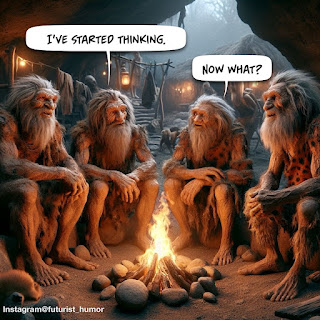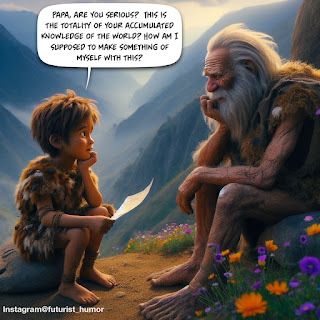Kevin Benedict is a TCS futurist and lecturer focused on the signals and foresight that emerge as society, geopolitics, economies, science, technology, environment, and philosophy converge.
How Beliefs Influence the Future
When the World Changed - Art and AI
Reading the News Like a Futurist with Alex Whittington
AI, Eldercare and Innovation with TCS Expert Ved Sen
Healthcare AI with Oracle Expert Suhas Uliyar
The Evolution of IoT, Digital Twins and AI with Rob Tiffany
The Evolution and Future of Information Dissemination
Ideation Equals Progress: Navigating the Future through Collective Ingenuity
Using Physics to Understand the Future
"While there can be surprise technological and market disruptions, classical Newtonian mechanical physics’ suggestions that trajectories are the flight paths determined by mass positioning, direction, and momentum as a function of time can help us make accurate predictions." ~ Jeffrey A. Sonnenfeld & Steven Tian
As a writer, I appreciate gifts of inspiration. Reading the above quote set my mind off this morning. It is so true! As a futurist we are always studying trends, innovations and developments, and then searching for signals that will inform us about the "trajectories," each of them will follow. Using Newtonian mechanical physics as helpful metaphors to understand directions and how much inertia a trend has, how fast it is changing, and how much resistance it might face are all useful considerations.
I have had the pleasure over the last year to meet with the leadership teams of many large companies around the world to talk about the future. Bringing a list of over 350 fast evolving trends across the domains of science, technology, societal, geopolitical and economic is a good place to start, but these discussions almost always turn quickly toward Newtonian mechanical physics. How much? How fast? When? What direction? How much inertia? What kind of resistance? These are the right questions!
As I covered in an article earlier this week, we can create different buckets of trends, innovations and developments. Some, are incremental innovations, while others are "launchpad" developments that will support entire new ways of thinking and will change the direction of our future.
It's not enough to pocket a list of quickly evolving trends, developments and technologies. One must understand the physics involved, the dependencies for a development to move forward, understand which rung on the historic ladder of progress a development is sitting, and also understand it's potential for scaling. These, of course, are just the beginning, but they are a good place to start.
Mastering the Art of Decision-Making:Navigating Complexity and Speed in Modern Leadership
Interviews with Kevin Benedict
-
Futurist David Espindola’s new book has just been released, "Soulful: You in the Future of Artificial Intelligence." Alex Whittin...
-
I had a great time participating in the filming and development of a 10 minute film on digital twins recently. Last week was its premier at...
-
In this deep dive with Munich Re (Groups) cybersecurity expert Bob Parisi, we learn how the insurance and reinsurance industry develops poli...




